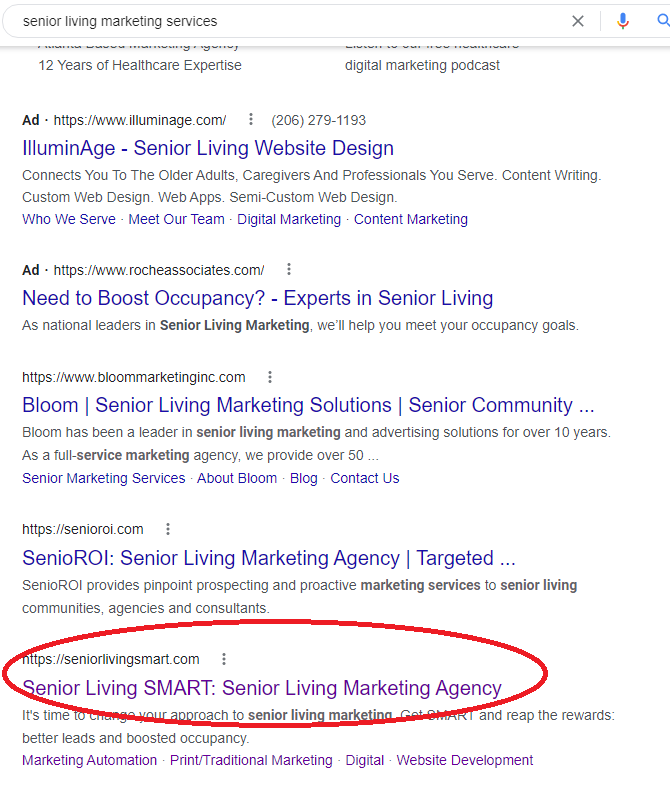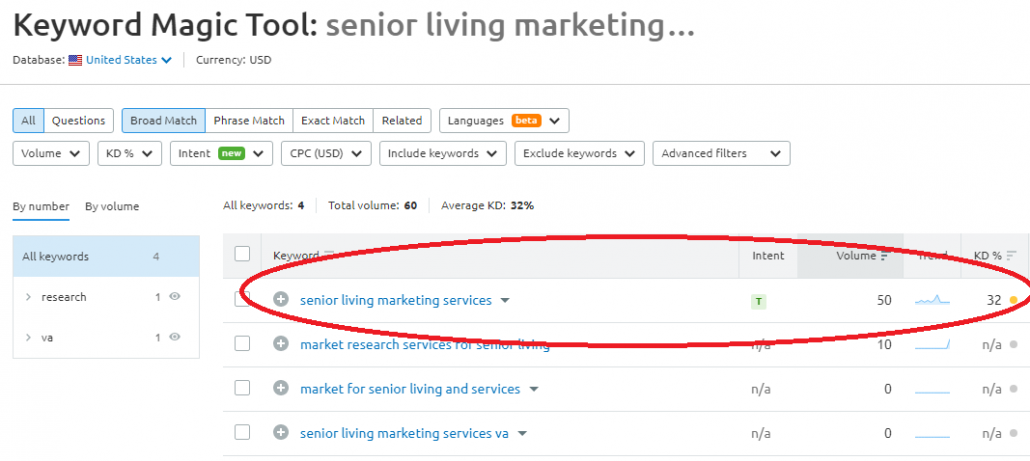What is SEO Copywriting?
Maybe you’re thinking of becoming a freelance copywriter and wondering what sort of work you’ll be doing. In your research, you might have come across terms like SEO, which has left you wondering, What is SEO copywriting?
This brings me to my (hopefully helpful) article. Below, I discuss
- What is copywriting?
- What is SEO?
- What is SEO copywriting?
- What do SEO copywriters do?
- What SEO copywriting tools do I use?
- How can you learn SEO copywriting?
What is copywriting?
At its simplest, copywriting is writing that sells a product, service, or cause. You will encounter different definitions—and even criticism of mine. But mine works, and here’s why: The digital landscape has blurred the lines between different types of writing.
In today’s digital marketing landscape, people use the terms copywriting, marketing writing, content marketing, and content writing interchangeably. And I don’t think they’re wrong in doing so. Content drives all business. It’s a 400 billion-dollar industry. And the goal of all content, ultimately, is to get people to buy or take some other deliberate action, like donate or vote.
Cue the cranky critics!
Critics tend to believe that copywriters are all about getting immediate sales, and content writers are all about engaging an audience. My take: the goal dictates what you write and how you write it, not your title.
For example, if you’re working on a long-form website landing page that’s trying to get people to subscribe to a course, you’ll lean into persuasive sales tactics. However, if you’re writing a “how-to” blog post that answers a question related to your client’s business, you’d write the content from an educational lens.
As a freelance copywriter for over 20 years, I regularly write both types of content.
(Read my in-depth post on what copywriting is.)
What is SEO?
SEO stands for search engine optimization.
Hearing what it stands for probably doesn’t help much, does it? What the heck does search engine optimization even mean?
Have you ever done a search in Google and wondered HOW Google decides which sites to serve up in its organic listings—especially on the first page? Well, Google uses a complex algorithm to determine what to serve up. (And only Google knows every element of the algorithm. It’s kind of like Colonel Sanders’ recipe for KFC.)
Basically, Google’s algorithm involves many moving parts and evolves over time. For example, twenty years ago, the algorithm didn’t even consider mobile devices because smartphones hadn’t been widely adopted yet (the first iPhone came out in 2007). Today, mobile friendliness is an important “signal” in Google’s algorithm.
Why does Google care so much?
Google’s primary goal is to satisfy the user’s search query. (That way, you’ll continue using Google search and clicking on its ads. That’s how Google makes money.) Whether you’re looking for “sandwich shops near me” or “senior living marketing services” or “how to clean corroded batteries,” Google’s primary goal is to give you the answers you’re looking for.
Its lightning-fast algorithm determines what to serve up in its results. Many factors go into this, such as the quality of the content itself, the number of authoritative backlinks pointing TO the content, how the keyword phrase that the user plugged into Google is used in the content, even how fast the site loads. (Note: That is an incredibly SMALL sampling of what goes into the algorithm, but you get the idea. To dig deeper, check out this article from Semrush on how the Google search algorithm works.)
When it’s searching through the thousands and thousands of potential sites it can serve up, the algo eventually lands on the top contenders and thinks, “This web page does the best job of answering the user’s search query, so let’s serve that up first on the list of organic search results.”
Let’s demonstrate with an example . . .
Let’s say you’re the director of sales and marketing for a fictional senior living community called The Elmwood Senior Living. And you need help with marketing. You google “senior living marketing services” and some paid ads show up at the top of the results, but also some organic listings.
You see one that catches your eye—the one for Senior Living SMART. You visit the site and love the vibe, the owners’ experience, and the impressive list of other senior living communities it works with. You decide to request a complimentary 30-minute brainstorming session.

THAT right there is an example of search engine optimization at work. (And yes, that’s one of my clients. I optimized a page on the site for the phrase “senior living marketing services.” Keep on reading to understand WHY I did this.)
Can you give website content a leg up so that it has a chance of being “chosen” by the Google algorithm?
Yes! That’s where search engine optimization and SEO copywriting come into play. You can finesse—or optimize—your online content so that it has a better chance of being served up (or, as we say, ranking well) in the search engine results pages (SERPs).
In fact, search engine optimization is its own field. People have titles like “SEO specialist” or “SEO consultant.” These folks know all aspects of search.
But at the end of the day, one of the most important pieces in the SEO puzzle is the content itself. And good news, copywriting newbies: The main goal in SEO copywriting is to simply write awesome content, meaning content that’s helpful, engaging, and error-free, which is likely the main reason you were drawn to this field—because you want to write great content.
OK, yeah: kickass SEO copywriting is a bit more involved than writing awesome content. But honestly, if you’ve got the “awesome writing” part down, the rest is straightforward. Sure, you need to know the target keyword phrase you’re writing about. SEO copywriting tools exist that can tell us what keyword phrases real people are searching on for every topic under the sun. (I use Semrush, which is a paid service. But there are some good freebie keyword tools out there.) So, if you have a client who operates a senior living marketing agency (like I do), you can do research in the tools to see what phrases people are plugging into Google search.
In the example I provided above, the phrase “senior living marketing services” has a search volume of 50, meaning 50 times a month, on average, people are plugging that phrase into search engines. It has a keyword difficulty of 32. The lower the keyword difficulty, the better chance you have of creating content that can rank well for that particular keyword phrase.

Some phrases (like the term “marketing services”) are incredibly competitive. There are thousands and thousands of searches on that phrase each month, but because there are so many other websites out there using the phrase, it would be next to impossible for you to get a new site, blog, or article ranking high for that phrase.
But a phrase like “senior living marketing services” is incredibly specific and doesn’t have as much competition (that’s what the “KD” indicates in the image above: keyword difficulty. The lower the number, the better chance that your content can rank for that phrase if done right).
And, sure, there’s a much lower search volume for the phrase “senior living marketing services.” But if you write awesome content that ranks and brings in some of those 50 searches a month . . . well, only good things can happen, right? (As in, that anonymous website traffic becomes bona fide leads and even customers.)
OK, so what is SEO copywriting?
SEO copywriting involves using keyword phrases and adeptly weaving them into engaging and helpful online content. The content can vary—you might be writing a home page. You might be writing a service page. You might be writing a blog post. You might be writing a landing page. But your job is to take the keyword phrase and produce a piece of engaging, helpful, error-free content that follows SEO best practices.
The number one best SEO copywriting technique? Writing for HUMANS first. Perhaps you write a blog post on Senior Living Marketing Services: How to Choose Ones That’ll Boost Occupancy. See how that incorporates the keyword phrase, but also hints at a great piece of content that can solve the searcher’s problem?
What does an SEO copywriter do?
As an SEO copywriter, you will need to . . .
- Understand your client’s business—particularly their ideal customer. What are the customer’s pain points? What solution does your client provide? How would that ideal customer search in Google to solve the problem they’re experiencing?
- Do research in keyword tools. As I mentioned above, there are free tools and paid tools, like Semrush. You need to research phrases that real people are searching on related to your client’s business, particularly those “longer-tail” keyword phrases that tend to have lower overall search volume, but less competition.
- Expertly weave the keyword phrases into the content, but in a way that sounds natural. No keyword stuffing!
- Follow SEO copywriting best practices for formatting. Use the keyword phrase in the title and in sub-headlines, and use bullet points and short paragraphs. (Kinda like what I’m doing here.)
- Write effective page titles and meta descriptions. Again, you can learn how to do this.
- Stay current with the latest SEO and SEO copywriting trends.
Basically, any writing that you—as a professional copywriter—do online will involve search engine optimization. So if you’re thinking about pursuing freelance copywriting, take the time to become familiar with SEO.
What SEO copywriting tools do I use?
- My brain and common sense. SEO copywriting isn’t rocket science. The biggest battle is writing fresh and original website content, and you need your brain for that.
- My clients. I’m not suggesting that my clients are tools. 😉 But in order to write fresh and original website content, you need a unique perspective. Turn to your clients for that perspective. Otherwise, you’ll just be adding to the pile of adequate and mediocre content that already exists. For example, are you writing service or product pages? Talk to the sales folks, engineers, or creators of those products or services to understand what makes them different. Are you writing an in-depth blog post about an important industry topic? Again, tap your client to get their take.
- Semrush. Semrush is my go-to tool for keyword research, competitor analysis, and more. I’m a paid subscriber.
- Grammarly. Catch embarrassing mistakes and typos before sending your copy to a client or publishing it. I always run my content through Grammarly, but I don’t accept all of its suggestions. You can sign up for the free version of Grammarly here. (If you sign up or buy via my affiliate link, it won’t cost you more, but I’ll earn a small commission.)
- Google Docs or Microsoft Word. The words gotta go somewhere, right?
When it comes to SEO copywriting, you don’t need much more than your brain, a way to research keywords, and something to write with.
How to learn SEO copywriting
Everything you need to know to become an SEO copywriter is available online for free (or low cost). I’m not against paid courses, but I always recommend starting with the free stuff.
- Search Engine Optimization (SEO) Starter Guide from Google
- The Ultimate Guide to SEO from HubSpot
- HubSpot Academy offers multiple SEO training courses and certifications for free.
Some great sites to subscribe to (in addition to HubSpot):
You’ll also want to brush up on copywriting basics and marketing. Here are my go-to recommendations:
Note: I use Amazon Affiliate links below. If you use one of the links to buy something, I’ll earn a small commission, but it won’t cost you more. I only recommend stuff that I believe in. I own both of these books.
- The Copywriter’s Handbook by Robert W. Bly (Amazon affiliate link). He tackles website copywriting in chapter 11. But I recommend reading the whole book.
- Using Behavioral Science in Marketing: Drive Customer Action and Loyalty by Prompting Instinctive Responses by Nancy Harhut (Amazon affiliate link). To write effective copy, you must understand what makes people tick.
Do you have other questions about SEO copywriting? As the Copy Bitch!
That’s me. I’m the Copy Bitch. Get in touch here.
